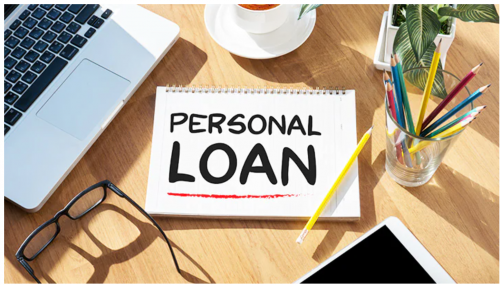 When you’re feeling overwhelmed by debt, the thought of debt consolidation can be very appealing. Debt consolidation can help reduce your monthly payments and make debt repayment more manageable.
When you’re feeling overwhelmed by debt, the thought of debt consolidation can be very appealing. Debt consolidation can help reduce your monthly payments and make debt repayment more manageable.
One option is to take out a personal loan to consolidate your debts. This can be a good solution in some cases, but you need to do your research first.
In this blog post, we’ll discuss does taking a personal loan for debt consolidation make sense? We’ll also give you some tips on finding the best debt consolidation option for you.
The Pros of Taking Out a Personal Loan for Debt Consolidation
- One monthly payment instead of multiple charges.
- You may be able to get a lower interest rate on your personal loan than you’re currently paying on your debt.
- The debt consolidation process can help you get organized and motivated to pay off your debt.
- Easy to understand repayment timeline
- Reputable lenders have better customer service
- It can boost your credit score if you meet payments
- A fixed-rate loan could lock you in at a low-rate
The Cons of Taking Out a Personal Loan for Debt Consolidation
- You may end up paying more in interest over the life of the loan.
- If you don’t have a good credit score, you may not get a personal loan, or you may have to pay a high-interest rate.
- You could lose any promotional interest rates you currently have on your debt.
- Some loans have additional fees for being set up
- Secured loans could see your collateral taken if repayments aren’t met
To get a better understanding of whether debt consolidation is the right choice for you, check out Bills.com.
Alternatives to a Personal Loan for Debt Consolidation
There are a few alternatives to personal loans that might be better suited for your situation. Before you make any decisions, it’s important to compare the long-term effects of each option.
Which one offers you the terms that you’ll be able to stick to best? If you’re looking to get out of debt quickly, you may be better off without a personal loan, as they sometimes come with early repayment fees.
- Balance transfer credit card
This can be a good option if you have a high-interest rate on your debt. You can transfer your balances to a new card with a 0% introductory APR. You’ll pay no interest during this period, which means if you keep up your regular payments. It’s an easy way to chip away at your balance and bring down your interest payments once you start being charged after the grace period.
- Debt consolidation program or debt management plan
Some companies offer debt consolidation programs, which combine all of your debts into one monthly payment. Use these services to get help with your debt from professionals.
- Do-it-yourself debt consolidation
This involves creating a budget and coming up with a plan to pay off your debt independently. It’s a good option for people who can’t get approved for a balance transfer card or personal loan. Also, you’ll learn a lot more about managing credit better in the future.
Is A Personal Loan the Right Decision for You?
There are pros and cons to taking out a personal loan for debt consolidation. If you’re looking for an easy way to reduce your monthly payments, consolidate your debt into one payment, or want to rebuild your credit score, then a personal loan may be the right decision for you.
Personal loans can be set up to last two or three years, which has the added benefit of giving you positive credit history, provided you meet payments on time. This can make you more attractive to lenders in the future.
Be sure to weigh all of your options before making any decisions.
Conclusion
Taking out a personal loan for debt consolidation can be a good option in some cases, but it’s not suitable for everyone. You’ll need to decide for yourself does taking a personal loan for debt consolidation make sense based on your current situation and opportunities.






